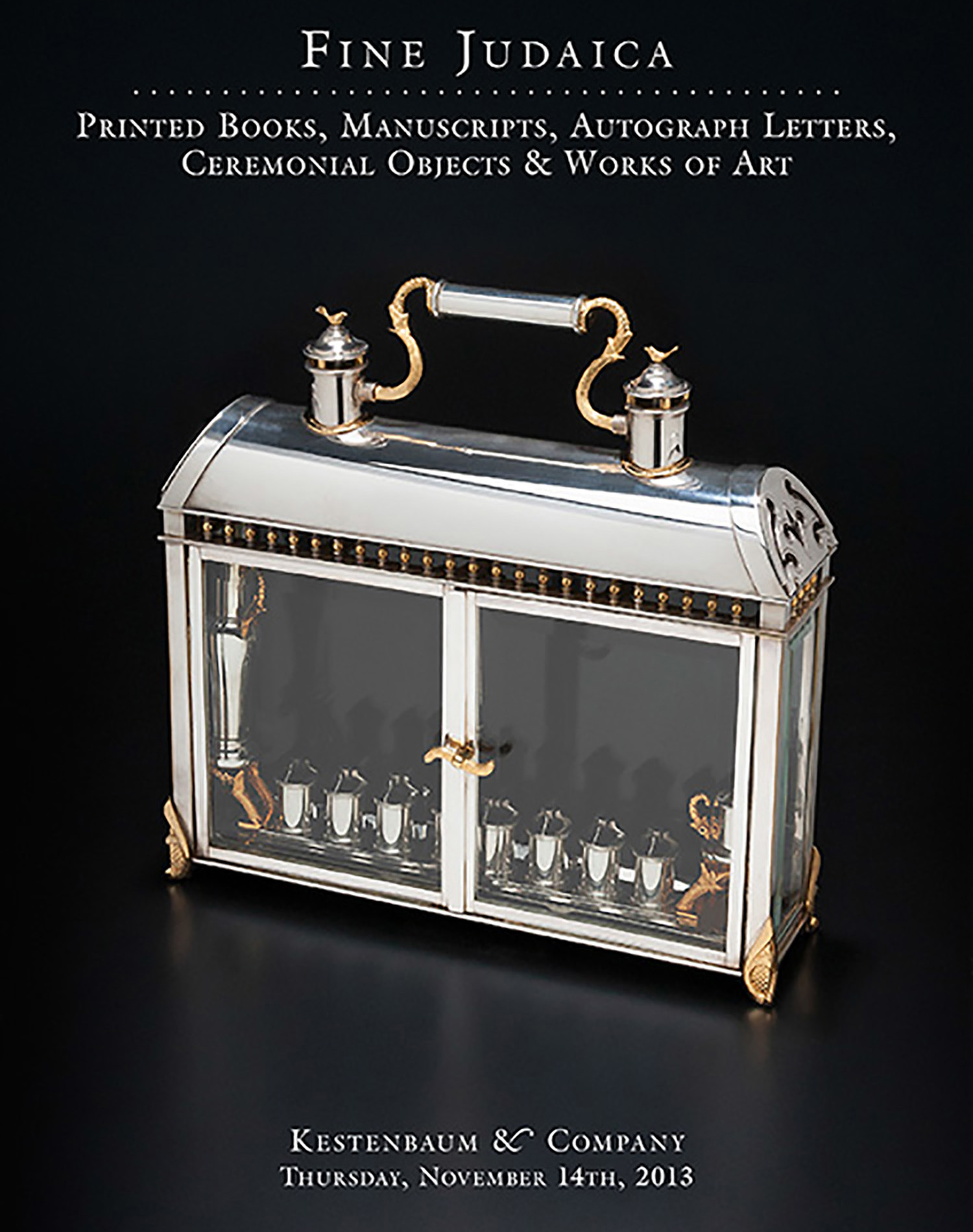(RASHI)

AUCTION 60 |
Thursday, November 14th,
2013 at 1:00
Fine Judaica: Printed Books, Manuscripts, Autograph Letters, Graphic Art and Ceremonial Objects
Lot 242
(RASHI)
Constantinople: (circa 1520-25)
Est: $8,000 - $12,000
<<EXTREMELY RARE CONSTANTINOPLE COLLECTION OF SUPER-COMMENTARIES TO RASHI.>>
The super-commentaries found in this work are known for their comprehensiveness and wide-ranging discussions of many fine points of Rashi’s commentary.
David Frankel, of Husyatin, Ukraine and New York regarded the acquisition of this work as one of the pinnacles of his book selling career, remarking that a complete copy of the “Canizal,” as this work is known in the scholarly world, is as scarce as one of the rarest incunabula. The Mehlman copy is also incomplete with the opening two leaves lacking.
On f. 47r. (of the second pagination) the editor writes: “Since R. Jacob Canizal did not comment on Parshath Mas’ei, I have substituted for him the comment of R. Abraham ben Eliezer, of blessed memory.” One would therefore presume this was the author of works of an apocalyptic nature, R. Abraham ben Eliezer Halevi (also called the Elder.) However Scholem gives 1528 as the date of his death. Assuming this is correct, our author must be another R. Abraham ben Eliezer. Nevertheless, there is the possibility that the Sepher Canizel was not printed by 1525 as many bibliographers assume (e.g. Zedner, Roest, Rivkind and Yaari followed by Vinograd), but later, in 1530, as suggested by Yudlov in Ginzei Yisrael. In fact, if the identification is positive, this would indeed prove the later date of publication. See G. Scholem, Kiryath Sepher, Vol. I (1924/25), 163-4; Vol. II (1925-6), pp. 101-141, 269-273; Vol. VII (1930-1), pp.440-456; EJ, Vol. II, cols. 140-141.
There exist several variants of the Sepher Canizel. See Y. Rivkind, Alexander Marx Jubilee Volume (Hebrew) (1950), pp. 409-410 and P. Krieger, Parshandatha (2005) no. 59.
